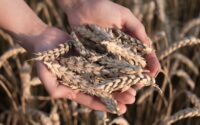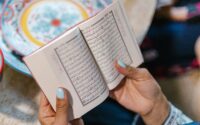
Different Types of Nafl Salaahs have Greater Rewards for all Muslims

Muslims offer five daily prayers in different times specified for each prayer in a day that Allah Almighty made obligatory for all Muslims. In addition to the five daily prayers, there are Nafl (voluntary) prayers which can be offered by Muslims. Nafl or voluntary prayer includes every extra prayer prayed in the times when prayer is allowed. They have exceptional virtues and today in this article we commence discussion on the Nafl prayers.

Different Types of Nafl Salaahs with Greater Rewards
Nafl Salahs are very important and valuable as they have many great rewards for all Muslims who offer optional prayers. Those who offer optional prayers get rewarded in the world afterward. We often miss this Salah by just classifying them as “optional/voluntary” but these are something we should consider as a blessing from Allah (SWT). There are different types of Nafl Salaahs have greater rewards for all Muslims.
- Tahiyatul Wudu Salah: It is the Nafl prayer which could be offered after completion of wudu. Abu Huraira (RA) narrated that Allah’s Messenger (SAW) said to Bilal (RA): “Tell me about the most hopeful act (i.e. one which you deem the most rewarding with Allah) you have done since your acceptance of Islam because I heard the sound of the steps of your shoes in front of me in paradise.” Bilal said: “I do not consider any act more hopeful than that whenever I make ablution (wudu) at any time of night or day, I offer Salah (prayer) for as long as was destined for me to offer.” (Muslim)
- Ishraak Salah: Ishraak prayer should perform after Fajr prayer when the sun rises. It usually has 2 or 4 Rakaats. Prophet Muhammad (SAW) said in one of His hadith: “He who performs Fajr Salat in the congregation and remains seated in the same place while engaging in Dhikr until after sunrise and thereafter performs 2 Rakaats Nafl Salah, (Ishraak), he will obtain the Thawaab of one Hajj and one Umrah.” (Tirmidhi)
- Salat ul Taubah: One should perform Salat ul Taubah after any sinful act. One should recite two Rakaats Nafl Salah ul Taubah after which he should sincerely repent, feel sorry for his sins, seek forgiveness and make a firm decision to not do it again. By the Grace of Allah Almighty, the sin would be forgiven. In Holy Quran, Allah Almighty says: “And those who have done something to be ashamed of or wronged their own souls. Earnestly bring Allah to mind and ask for forgiveness of their sins and who can forgive this, except Allah” (Quran, 3:135)
- Salat ul Istikhara: This Nafl prayer has 2 Rakaats with the intention to ask Allah Almighty for guidance in a matter. It should be performed in any permissible time.
- Salat ul Tasbih: Our beloved Prophet (SAW) has recommended to read this Nafl prayer daily on each Friday or once a month or once a year, in case of this not being possible, to read it even once in one’s life. This Nafl prayer provides limitless benefits both in the material and spiritual life. This Nafl prayer has 4 Rakaats. Our beloved Prophet (SAW) had taught this Nafl prayer to His Uncle, Hazrat Abbas (RA) and told him: “He who performs this prayer will have his past and future sins are forgiven.”(Tirmidhi)
- Salat ul Hajat: This Nafl prayer should perform at the time of need. It usually has 2 Rakaats. It needs a sincere supplication that states what one wishes to be accomplished and requesting Allah Almighty’s help in its accomplishment.
- Salat ul Tahajjud: Offering Tahajjud prayer at night is one of the most beautiful prayers because one is waking up when most people are sleeping, to talk to and ask of Allah Almighty. It usually has minimum 2 Rakaats and maximum 4 Rakaats. After Isha prayer, one should get some sleep and then wake up and offer Tahajjud prayer. It is reported in a hadith that: “Allah descends to the lowest heaven during the last third of the night, inquiring: ‘Who will call on Me so that I may respond to him? Who is asking something of Me so I may give it to him? Who is asking for My forgiveness so I may forgive him?’” (Bukhari)
These were some voluntary prayers that one should try to perform for getting greater rewards and blessings from Allah Almighty. May Allah gives us the strength to offer Nafl prayers with obligatory prayer, Ameen!




